Imagine yourself 35,000 feet up, pushing a trolley down a narrow aisle surrounded by restless passengers. A toddler is blocking your path, his parents not immediately visible. A passenger is irritated that he can no longer pay cash for an in-flight meal, another is demanding to be allowed past to use the toilet. And your job is to meet all of their needs with the same show of friendly willingness.
For a cabin crew member, this is when emotional labour kicks in at work.
A term first coined by sociologist
Arlie Hoschild, it’s the work we do to regulate our emotions to create “a publicly visible facial and bodily display within the workplace”.
Simply put, it is the effort that goes into expressing something we don’t genuinely feel. It can go both ways – expressing positivity we don’t feel or suppressing our negative emotions.
Unhelpful attitudes such as ‘I’m not good enough’ may lead to thinking patterns in the workplace such as ‘No-one else is working as hard as I seem to be’ or ‘I must do a perfect job’, and can initiate and maintain high levels of workplace anxiety - Leonard
Hoschild’s initial research focused on the airline industry, but it’s not just in-flight staff keeping up appearances. In fact,
experts say emotional labour is a feature of nearly all occupations in which we interact with people, whether we work in a customer-facing role or not. The chances are, wherever you work, you spend a fair portion of your working day doing it.
When research into emotional labour first began, it focused on the service industry with the underlying presumption that the more client or customer interaction you had, the more emotional labour was needed.
However, more recently psychologists have expanded their focus to other professions and found burnout can relate more closely to how employees manage their emotions during interactions, rather than the volume of interactions themselves.
Perhaps this morning you turned to a colleague to convey interest in what they said, or had to work hard not to rise to criticism. It may have been that biting your lip rather than expressing feeling hurt was particularly demanding of your inner resource.
But in some cases maintaining the façade can become too much, and the toll is cumulative. Mira W, who preferred not to give her last name, recently left a job with a top airline based in the Middle East because she felt her mental wellbeing was at stake.
In her last position, the “customer was king”, she says. “I once got called 'whore' because a passenger didn't respond when I asked if he wanted coffee. I’d asked him twice and then moved to the next person. I got a tirade of abuse from the man.”
“When I explained what happened to my senior, I was told I must have said or done something to warrant this response… I was then told I should go and apologise.”
“Sometimes I would have to actively choose my facial expression, for example during severe turbulence or an aborted landing,” she says. “Projecting a calm demeanour is essential to keep others calm. So that aspect didn't worry me. It was more the feeling that I had no voice when treated unfairly or extremely rudely.”
During her time with the airline, she encountered abuse and sexism – and was expected to smile through it. “I was constantly having to hide how I felt.
Over the years and particularly in her last role, handling the stress caused by suppressing her emotions became much harder. Small things seemed huge, she dreaded going to work and her anxiety escalated.
“I felt angry all the time and as if I might lose control and hit someone or just explode and throw something at the next passenger to call me a swear word or touch me. So, I quit,” she says.
She is now seeing a therapist to deal with the emotional fallout. She attributes some of the problems to isolation from family and a brutal travel schedule, but has no doubt that if she hadn’t had to suppress her emotions so much, she might still be in the industry.
Mira is not alone. Across the globe, employees in many professions are expected to embrace a work culture that requires the outward display of particular emotions – these can including ambition, aggression and a hunger for success.
The way we handle emotional labour can be categorised in two ways – surface acting and deep acting
A few years ago, the New York Times wrote a “
lengthy piece about the “Amazon Way”,describing very specific and exacting behaviour the retail company required of its employees and the effects, both positive and negative, that this had on some of them. While some appeared to thrive in the environment, others struggled with constant pressure to show the correct corporate face.
“Unhelpful attitudes such as ‘I’m not good enough’ may lead to thinking patterns in the workplace such as ‘No-one else is working as hard as I seem to be’ or ‘I must do a perfect job”, and can initiate and maintain high levels of workplace anxiety,” says Leonard.
Workers are often expected to provide good service to people expressing anger or anxiety – and may have to do this while feeling frustrated, worried or offended themselves.
“This continuous regulation of their own emotional expression can result in a reduced sense of self-worth and feeling disconnected from others,” she says.
Hoschild suggests that the way we handle emotional labour can be categorised in two ways – surface acting and deep acting – and that the option we choose can affect the toll it takes on us.
Take the example of a particularly tough phone call. If you are surface acting you respond to the caller by altering your outward expression, saying the appropriate things, listening while keeping your actual feelings entirely intact. With deep acting you make a deliberate effort to change your real feelings to tap in to what the person is saying – you may not agree with the manner of it but appreciate the aim.
Both could be thought of as just being polite but the latter approach – trying to emotionally connect with another person’s point of view – is associated with a lower risk of burnout.
Jennifer George’s role as a liaison nurse with a psychiatric specialism in the Accident & Emergency department at Kings College London Hospital puts her at the sharp end of health care. Every day she must determine patients’ needs – do they genuinely need to be admitted, just want to be looked after for a while or are they seeking access to drugs?
“It’s important to me that I test my own initial assumptions,” she says. “As far as I can, I tap into the story and really listen. It’s my job but it also reduces the stress I take on.”
“Sometimes I’ll have an instinctive sense that the person is trying to deceive, or I can become bored with what they’re saying. But I can’t sit there and dismiss something as fabrication and I don’t want to.”
This process can be upsetting, she says. Sometimes she has to say no “in a very direct way”, and the environment can be noisy and threatening. “I stay as much as I can true to myself and my beliefs. Even though I need to be open to what both fellow professionals and would-be and genuine patient cases say to me, I will not say anything I don’t believe and that I don’t believe to be right. And that helps me,” she says.
When things get tough, she talks to colleagues to unload. “It’s the saying it out loud that allows me to test and validate my own reaction. I can then go back to the person concerned,” she says.
Ruth Hargrove,
a former trial lawyer based in California, also faces tricky interactions in her work representing San Diego students pro bono in disciplinary matters. “Pretty much everyone you are dealing with in the system can make you labour emotionally,” she says.
One problem, says Hargrove, is that some lawyers will launch personal attacks based on any perceived weakness – gender, youth – rather than focusing on the actual issues of the case.
“I have dealt with it catastrophically in the past and let it eat at my self-esteem,” she says. “But when I do it right, I realise that I can separate myself out from it and see that [their attack] is evidence of their weakness.”
Rather than refuting specific, personal allegations, she simply sends back a one-line email saying she disagrees. “Not rising to things is huge,” she says. “It’s a disinclination to engage in the emotional battle that someone else wants you to engage in. I keep in sight the real work that needs to be done.”
Those who report regularly having to display emotions at work that conflict with their own feelings are more likely to experience emotional exhaustion
Hargrove also has to deal with the expectations of clients who believe – sometimes unrealistically – that if they have been wronged, justice will prevail. She understands their feelings, even as she has to set them straight.
“I empathise here, as a parent, with their thought that there should be a remedy, even when I know it’s not going to be achievable. It helps me that this feeling is also true to me.”
Remaining true to your feelings appears to be key – numerous studies show those who report regularly having to display emotions at work that conflict with their own feelings are more likely to experience emotional exhaustion.
Of course, everybody needs to be professional at work and handling difficult clients and colleagues is often just part of the job. But what’s clear is that putting yourself in their shoes and trying to understand their position is ultimately of greater benefit to your own well-being than voicing sentiments that, deep down, you don’t believe.
Leonard says there are steps individuals and organisations can take to prevent burnout. Limiting overtime, taking regular breaks and tackling conflict with colleagues through the right channels early on can help, she says, as can staying healthy and having a fulfilling life outside work. A “climate of authenticity” at work can be beneficial.
“Organisations which allow people to take a break from high levels of emotional regulation and acknowledge their true feelings with understanding and non-judgemental colleagues behind the scenes tend to fare better in the face of these demands,” she says.
Such a climate can also foster better empathy, she adds, by allowing workers to maintain emotional separation from those with whom they must interact.
Where it is possible, workers should be truly empathetic, be aware of the impact the interaction is having on them and try to communicate in an authentic way. This, she says, can “protect you from communicating in a disingenuous manner and then feeling exhausted by your efforts and resentful of having to fake it”.



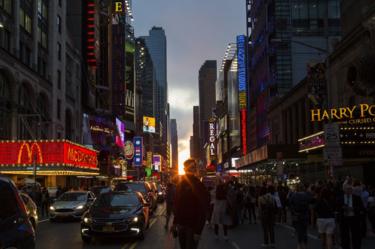 GETTY IMAGES
GETTY IMAGES GETTY IMAGES
GETTY IMAGES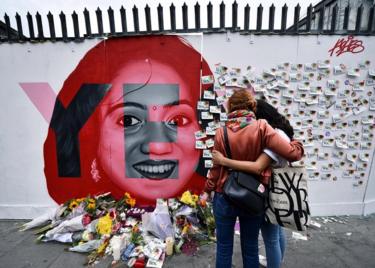 GETTY IMAGES
GETTY IMAGES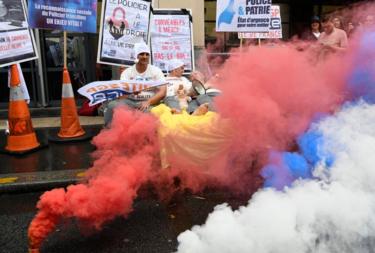 GETTY IMAGES
GETTY IMAGES REUTERS
REUTERS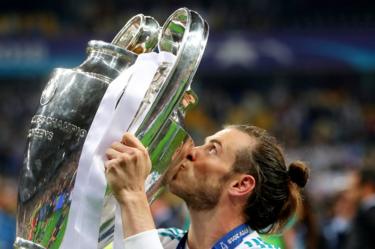 REUTERS
REUTERS REUTERS
REUTERS REUTERS
REUTERS GETTY IMAGES
GETTY IMAGES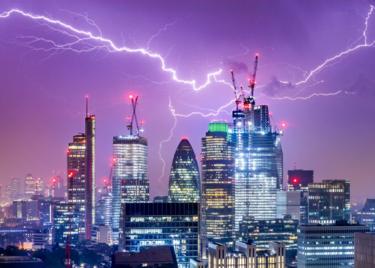 SHUTTERSTOCK
SHUTTERSTOCK








